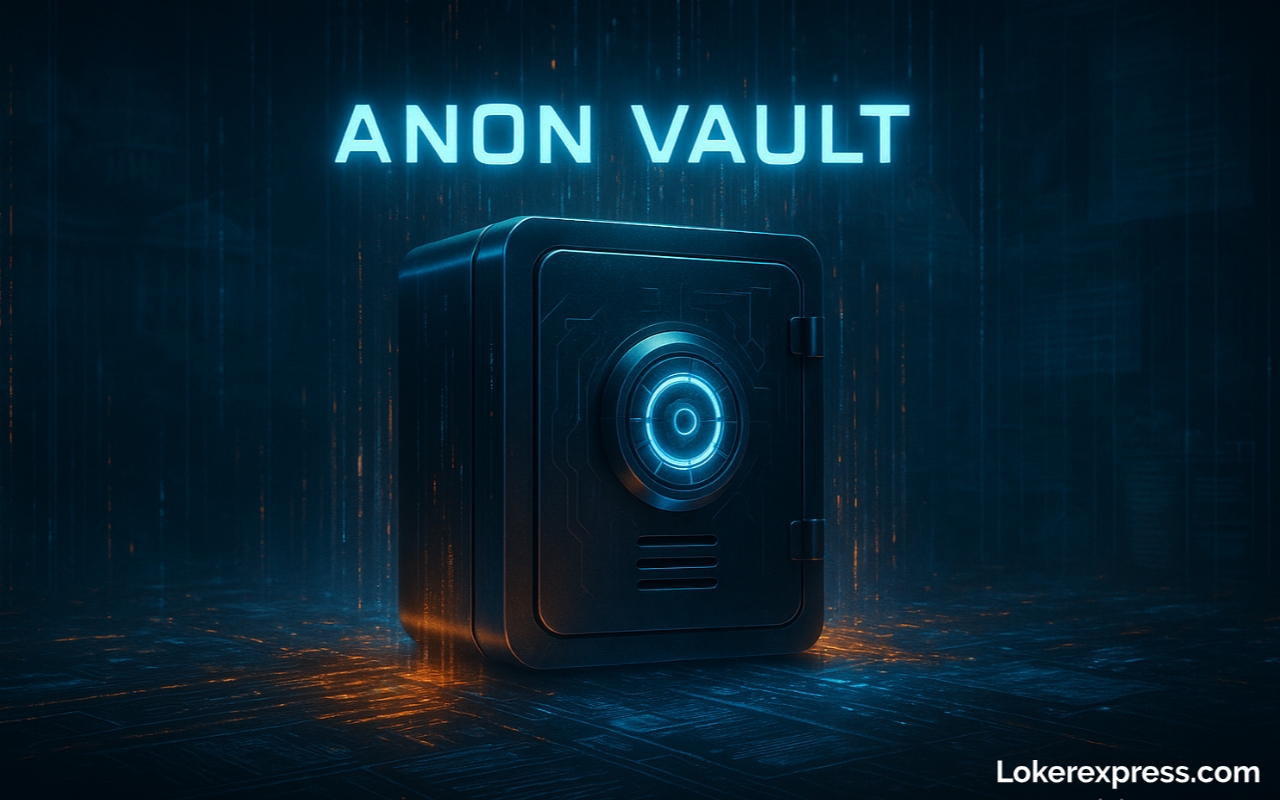Introduction: Why Anon Vault Matters in the Modern Digital Age
The internet has transformed every aspect of our lives—from communication and commerce to governance and entertainment. But this digital evolution comes with a price: the loss of privacy. Every click, search, and upload can be tracked, analyzed, and stored. In this landscape, the need for robust, user-controlled data protection has never been more critical. This is where Anon Vault comes into play. Designed as a privacy-first digital storage solution, Anon Vault prioritizes anonymity, security, and decentralization. It aims to put control back into the hands of users, shielding them from surveillance capitalism, cyber threats, and unwanted third-party access.
What Is Anon Vault?
Anon Vault is a term used to describe a class of encrypted, anonymous storage solutions that allow users to store and share files without revealing their identity. It typically features end-to-end encryption, zero-knowledge architecture, decentralized hosting, and anonymous access mechanisms. The idea is simple but revolutionary: create a secure environment where data is stored safely without needing to register an account or provide personal information.
In many implementations, users are given a randomly generated access key or URL, which acts as their sole means of accessing and managing their data. This ensures that no identifiable information is ever tied to the stored content, providing a level of security and privacy unmatched by traditional cloud storage services.
Core Technical Features of Anon Vault
End-to-End Encryption
End-to-end encryption means that files are encrypted on the user’s device before they are uploaded. The decryption keys remain with the user, ensuring that no one—including the service provider—can access the contents. Most Anon Vault systems use strong encryption algorithms such as AES-256, combined with modern hashing techniques.
Zero-Knowledge Architecture
In a zero-knowledge system, the service provider has no access to user data or even metadata. It cannot view filenames, file types, or access logs. This is in stark contrast to conventional services like Google Drive or Dropbox, which may scan user files for content or use metadata for targeted advertising.
Decentralized Storage
Rather than relying on centralized servers, Anon Vault often distributes data across a decentralized network. This could be through technologies like IPFS (InterPlanetary File System) or blockchain-based systems. Decentralization enhances resilience, reducing the risk of data loss or compromise due to a single point of failure.
Anonymous Access and Sharing
One of the hallmark features of Anon Vault is the ability to use the service without creating an account. Users can generate shareable links that expire after a certain time or number of downloads. This enables one-time, anonymous sharing of sensitive files.
Privacy-Enhanced Payments
Some Anon Vault platforms support privacy-focused cryptocurrencies like Monero or privacy-preserving tokens for subscription or storage upgrades. This maintains financial anonymity, which is often overlooked in other services.
Benefits of Using Anon Vault
True Anonymity
Unlike traditional storage services that require emails, passwords, and two-factor authentication linked to phone numbers, Anon Vaults function without personal identifiers. This makes them ideal for users concerned about digital tracking and surveillance.
Maximum Data Security
With data encrypted before it leaves your device, and keys stored only with you, the risk of breaches is minimized. Even if a server is compromised, the attacker gains nothing but encrypted, unusable data.
Resistance to Censorship
Because Anon Vault services often utilize decentralized systems, they are difficult to censor or take down. This is crucial for users in authoritarian regimes or for activists who need secure communication channels.
User Empowerment
Anon Vault puts the user in full control of their data. You choose what to store, how to share it, and when to delete it—without interference or oversight from third parties.
Key Use Cases for Anon Vault
Whistleblowers and Investigative Journalists
Anon Vault provides a safe haven for whistleblowers who need to share sensitive information anonymously. Journalists can use it to receive or send confidential materials without compromising their sources.
Activists and Political Dissidents
In regions with strict censorship or government surveillance, Anon Vault allows activists to coordinate, store documents, and communicate safely.
Healthcare and Legal Professionals
Medical records, legal contracts, and other sensitive documents can be stored securely, ensuring compliance with data protection laws like HIPAA and GDPR while preserving client confidentiality.
Freelancers and Digital Nomads
Independent professionals often handle multiple clients and sensitive files. Anon Vault offers a way to manage this data without relying on insecure or overreaching platforms.
Everyday Users
Even casual internet users can benefit from Anon Vault by storing personal photos, financial documents, or passwords without fear of them being accessed or analyzed.
Potential Drawbacks and Limitations
No Password Recovery
Because of the zero-knowledge principle, if you lose your access key or encryption password, your data is irretrievable. There is no “forgot password” feature.
Learning Curve
Some Anon Vault platforms are not user-friendly and may require a basic understanding of cryptography or decentralized systems.
Limited Collaboration Tools
Unlike Google Workspace or Microsoft 365, Anon Vault is not built for collaborative document editing or real-time communication.
Risk of Misuse
Like any anonymous platform, Anon Vault could potentially be misused for illegal purposes. However, this risk is present with any tool that prioritizes privacy.
Setting Up and Using Anon Vault
Step 1: Choose a Trusted Platform
Research available Anon Vault services and read user reviews or audit reports. Open-source platforms are generally more transparent and trustworthy.
Step 2: Secure Your Access Keys
Once you generate a vault, store your access key or password securely. Consider using an offline password manager or writing it down and keeping it in a safe place.
Step 3: Upload Your Files
Files are encrypted before they leave your device. Most services will allow you to drag-and-drop files directly into your vault interface.
Step 4: Share Anonymously
Create time-limited or password-protected links for sharing. Some services allow setting download limits or automatic deletion after access.
Step 5: Monitor and Maintain
Keep track of what you’ve stored, and delete files when they’re no longer needed. Regularly update your local backups if applicable.
Best Practices for Using Anon Vault
- Use strong, unique passphrases for encryption.
- Avoid storing access keys in cloud-based password managers.
- Pair Anon Vault with a VPN or Tor for additional privacy.
- Keep software updated to patch vulnerabilities.
- Read the privacy policies (if available) to understand data retention and system design.
The Future of Anon Vault
The concept of Anon Vault is likely to evolve with advancements in cryptographic research, decentralized identity systems, and user-friendly interfaces. As global awareness about digital privacy grows, we can expect more users—both individuals and organizations—to adopt these solutions. Regulatory shifts may challenge or support these platforms, depending on political and legal landscapes. Still, the demand for private, user-centric storage solutions is unlikely to wane.
Emerging technologies like zero-knowledge proofs, blockchain authentication, and AI-driven security monitoring will continue to shape the next generation of Anon Vault services.
Read More: Doge HHS Migrant Housing Contract: What You Need to Know
Conclusion
Anon Vault represents more than just a secure way to store files—it’s a vision for a digital world where users are not the product. By giving individuals full control over their data, enabling anonymous interaction, and resisting surveillance, Anon Vault offers a crucial alternative in an age dominated by intrusive cloud services. Whether you’re a privacy advocate, a professional dealing with sensitive documents, or just someone who values autonomy, Anon Vault is a powerful tool in your digital arsenal.

